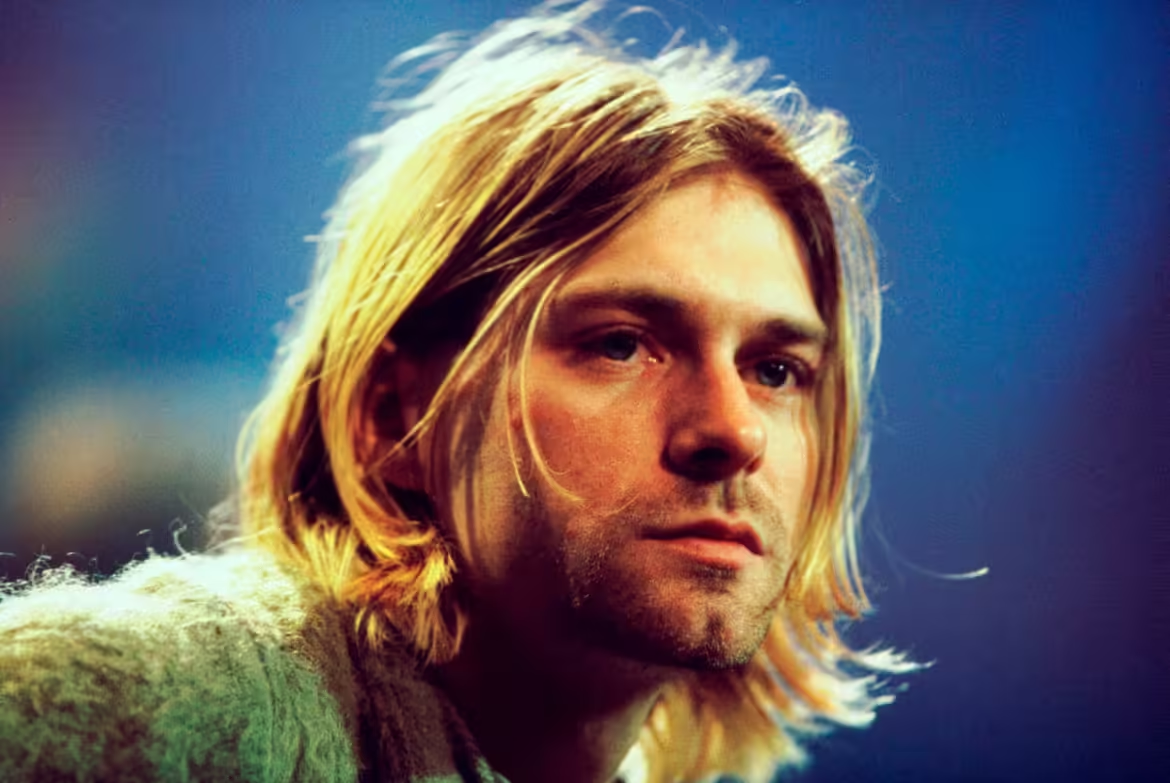
Kurt Cobain was one of the most iconic and influential musicians of the late 20th century. As the lead vocalist, guitarist, and primary songwriter for Nirvana, Cobain became the voice of Generation X, representing the disillusionment, angst, and alienation that characterized the grunge movement of the early 1990s. His untimely death at the age of 27 cemented his legacy as a tragic figure in rock history, but his influence on music, culture, and the perception of fame endures to this day.
Early Life and Influences
Kurt Donald Cobain was born on February 20, 1967, in Aberdeen, Washington, a small logging town with a bleak economic outlook. His parents, Wendy and Donald Cobain, divorced when Kurt was nine years old, an event that deeply affected him. His childhood was marked by emotional instability, a sense of isolation, and a deep-seated feeling of not fitting in. He turned to music as an escape and a way to express his frustrations and inner turmoil.
His interest in music was evident from an early age, and he grew up listening to a diverse range of artists, including The Beatles, Led Zeppelin, and Black Sabbath. His discovery of punk rock, particularly bands like The Sex Pistols and The Melvins, would shape his musical style and ethos.
Cobain’s exposure to punk rock gave him a sense of belonging and validation. The DIY (do-it-yourself) attitude of punk rock appealed to him, and it provided a raw, unpolished sound that mirrored his own feelings of anger and alienation. He admired punk’s rejection of mainstream culture and embraced its rebellious spirit, which would later become a hallmark of his music.
Formation of Nirvana
In the mid-1980s, Kurt Cobain met Krist Novoselic, a fellow music enthusiast from Aberdeen. The two bonded over their shared love of punk rock, and in 1987, they formed Nirvana. After going through a series of drummers, they eventually settled on Dave Grohl in 1990, solidifying the band’s most famous lineup. Nirvana’s early work reflected the influence of punk and hardcore, but Cobain’s songwriting evolved over time, incorporating elements of pop melody and structure into their grunge sound.
Their first album, Bleach (1989), released by the independent label Sub Pop, garnered modest attention, but it was their second album, Nevermind (1991), that catapulted Nirvana to international fame. With its breakout single “Smells Like Teen Spirit,” Nevermind became the defining album of the grunge era and a cultural phenomenon.
The album’s success was unexpected, and Cobain was thrust into the spotlight as the reluctant spokesman for a generation. Songs like “Come As You Are,” “Lithium,” and “In Bloom” captured the sense of existential ennui and dissatisfaction that many young people felt at the time.
Grunge and the Rise to Fame
Kurt Cobain’s music and image helped define grunge, a genre that emerged from the Seattle music scene in the late 1980s and early 1990s. Grunge was characterized by its heavy guitar riffs, raw production, and themes of disillusionment and frustration. Bands like Soundgarden, Pearl Jam, and Alice in Chains were also central to the grunge movement, but Nirvana stood at the forefront of its mainstream success.
The release of Nevermind marked a turning point in rock music, as it signaled the end of the dominance of 1980s glam metal and hair bands, making way for a more authentic, stripped-down sound that resonated with the disaffected youth of the era. “Smells Like Teen Spirit” became an anthem, and its accompanying music video, with images of anarchy and teenage rebellion, further solidified Cobain’s position as the voice of a generation.
.
.
However, the sudden fame was overwhelming for Cobain. He struggled with the pressures of celebrity and the commercial success of Nirvana. He often expressed disdain for the mainstream attention his band received, feeling that it diluted the integrity of their music and message. Cobain’s reluctance to embrace his role as a public figure, combined with his deeply personal lyrics, made him both a revered and enigmatic figure.
Personal Struggles
Kurt Cobain’s personal life was marked by turmoil and conflict. He had a complicated relationship with fame, and despite his outward success, he struggled with addiction, depression, and physical health problems. By the early 1990s, he had developed a serious heroin addiction, which he used as a way to cope with his emotional pain and chronic stomach problems. His drug use strained his relationships with friends, family, and bandmates, and it became a major public issue as the media scrutinized his personal life.
In 1992, Cobain married Courtney Love, the lead singer of the band Hole. The couple’s relationship was highly publicized and often controversial, with rumors of drug use and instability surrounding them. In August of that year, their daughter, Frances Bean Cobain, was born. Despite the joy of fatherhood, Cobain’s personal demons continued to haunt him, and his drug use escalated.
Musical Legacy
Nirvana’s third and final studio album, In Utero (1993), was a darker, more abrasive record compared to Nevermind. Produced by Steve Albini, the album was a deliberate departure from the polished sound of their previous work. Songs like “Heart-Shaped Box” and “All Apologies” reflected Cobain’s inner struggles and distaste for the trappings of fame. While In Utero was not as commercially successful as Nevermind, it was critically acclaimed and solidified Nirvana’s place as one of the most important bands in rock history.
Kurt Cobain’s songwriting was both deeply personal and universally relatable. He wrote about his own pain, insecurities, and frustrations, but his lyrics resonated with millions of listeners who felt the same sense of disconnection. His ability to combine raw emotion with catchy melodies made him a unique and influential figure in music.
.

.
Death and Legacy
On April 5, 1994, Kurt Cobain took his own life at the age of 27, joining the infamous “27 Club” of musicians who died at that age, including Jimi Hendrix, Janis Joplin, and Jim Morrison. His death shocked the world and devastated his fans, many of whom saw him as a symbol of their own struggles and insecurities.
Kurt Cobain’s death marked the end of Nirvana and the grunge movement’s peak, but his influence on music and culture continues to be felt. He is often remembered not just for his music, but for his role in challenging the conventions of fame, gender, and artistic integrity. Cobain was an advocate for women’s rights, LGBTQ+ issues, and often used his platform to speak out against racism and homophobia. His openness about his struggles with mental health has also inspired discussions about the pressures of fame and the importance of mental well-being.
Conclusion
Kurt Cobain remains an enduring figure in the history of rock music. His music, characterized by its raw intensity and emotional honesty, resonated with a generation of listeners who felt disconnected from the mainstream. Despite his struggles with fame, addiction, and mental health, his contributions to music and culture are undeniable.
Nirvana’s music continues to inspire new generations of artists and fans, and Cobain’s legacy as a tortured artist who gave voice to the voiceless endures. His life and death are reminders of the complexities of fame and the power of music to connect with the human experience at its most vulnerable.
Check out Kurt Cobain on Amazon.
.


Pingback: Jim Morrison died July 3, 1971. - Dead Musicians
Pingback: Jimi Hendrix died September 18, 1970. - Dead Musicians
Pingback: Amy Winehouse died July 23, 2011. - Dead Musicians
Pingback: Musicians in the 27 Club - Dead Musicians